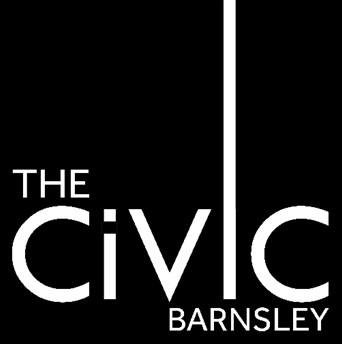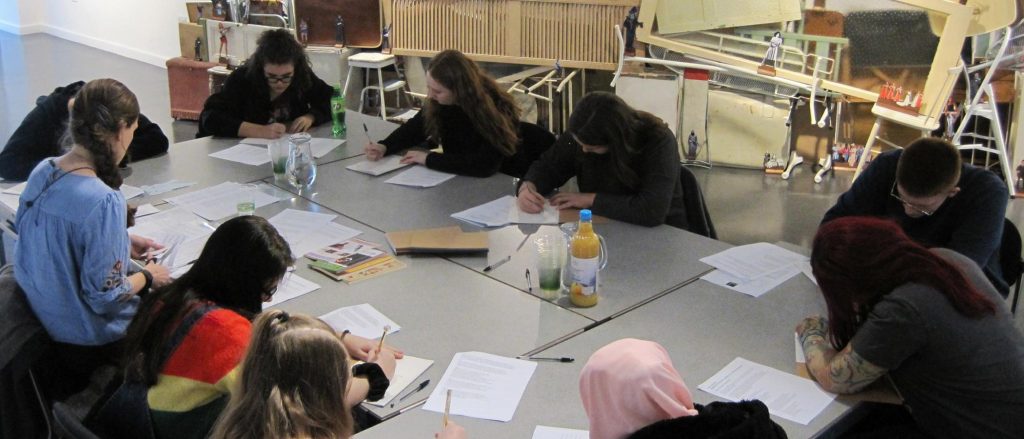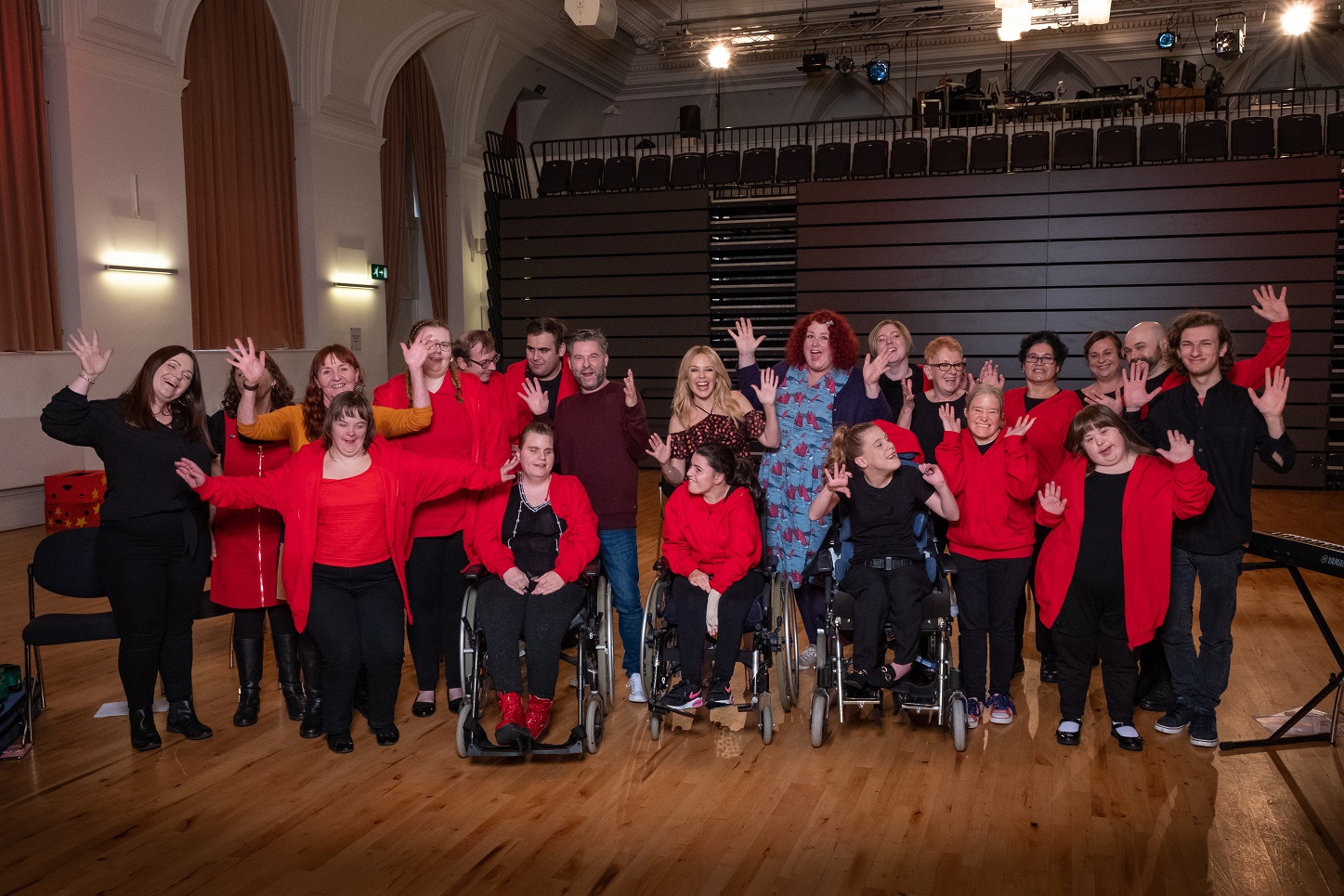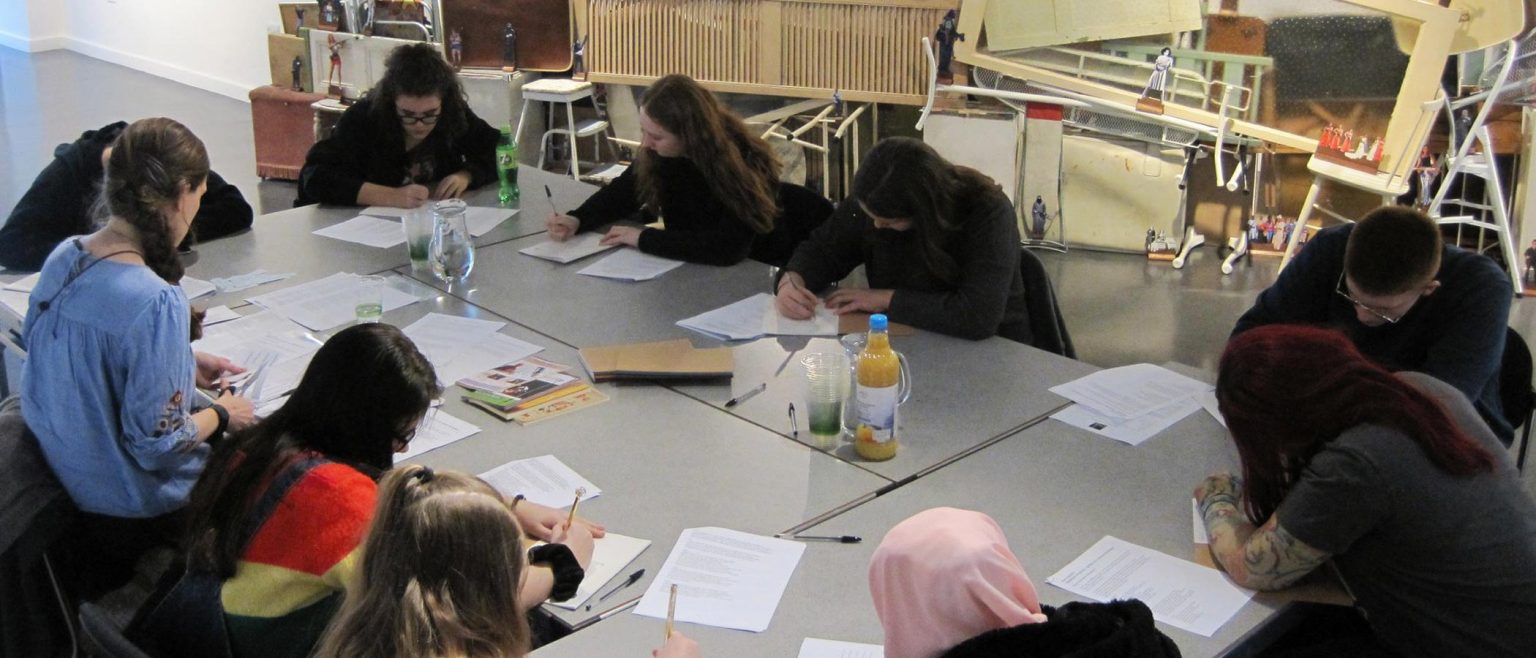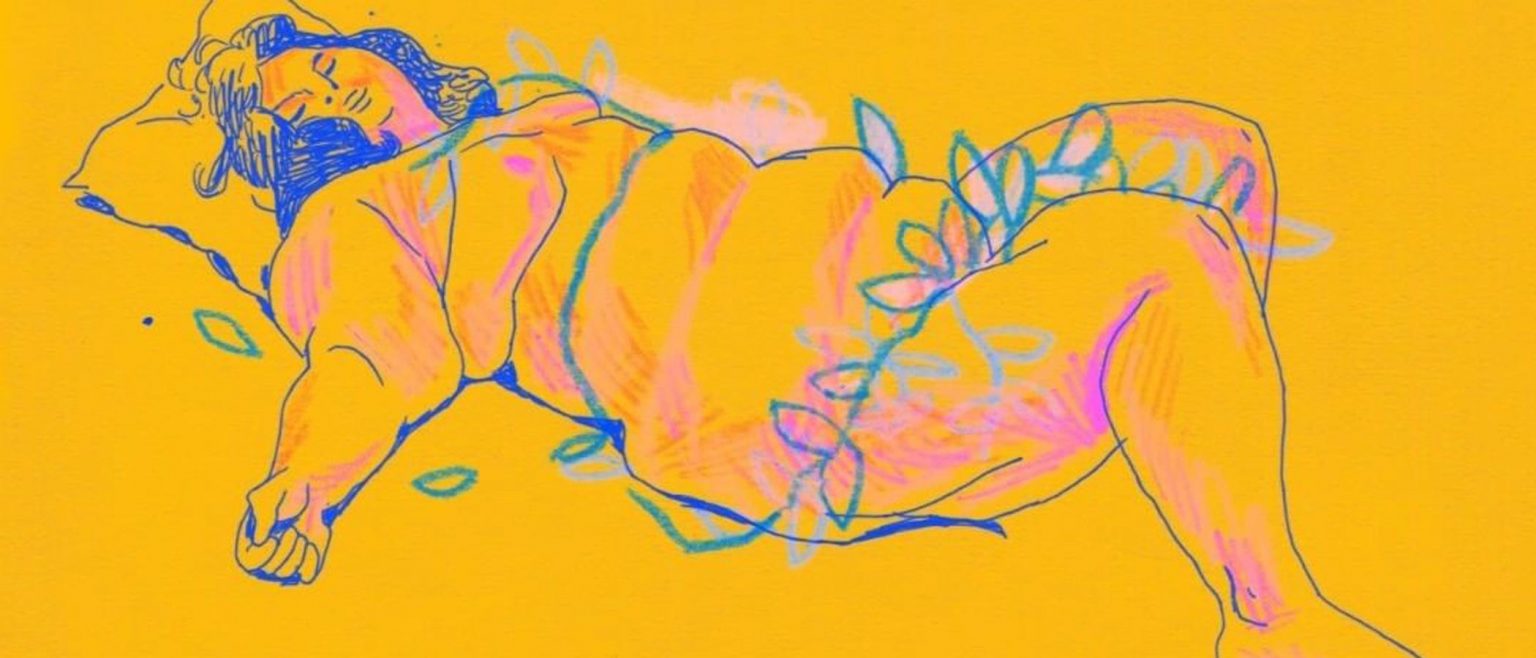Vicky Morris is an award-winning poet and creative practitioner based in Sheffield. She also had a late diagnosis of Autism Spectrum Disorder (then diagnosed Asperger’s) and ADHD in her early 40s. She’s the founder of Hive, a creative writing hub for young people aged 14-30 in South Yorkshire, which offers a wide range of writing activities and opportunities. Hive has seen an impressive number of national award winners come through its ranks, including winners of the BBC Young Writer of the Year and the international New Poets Prize.
We recently spent time with Vicky to find out more about her practise and her experiences of being a neurodivergent creative.

Your website describes you as a writer, educator and creative practitioner. Does any of those roles take centre stage for you?
On my Twitter, it says I’m a neurodivergent jack of creative trades. I’ve always been autodidactic and motived by creative thinking, action, mediums etc. I don’t see them as separate. They are just different hats under a big creative umbrella. I’m a plate spinner between my different roles so sometimes one is more important than another for a while. My own writing has become more important in the last few years too.
Can you tell me about your journey to pursuing an ASD diagnosis?
I was diagnosed dyslexic at around 30, but I’d always thought something else didn’t add up. A few years ago, in my early 40s, a friend said it had been picked up through counselling sessions that she might be on the spectrum. She consequently went for a test and there it was. She said she immediately thought of me! When she described her difficulties, the penny dropped. I started looking into it. I then suspected I had ADHD too.
What made you feel it was worth looking into ASD and ADHD in particular?
The main issues were: overwhelm, sensory issues, regulating attention and sensory input, being pretty monotropic (tunnelled) at times in my thinking. My out of the box ways of doing things, my struggle to fit into systems I didn’t see the logic in, or to toe the line. High emotional sensitivity, hyper focus, an overactive justice trigger for what’s right, very dedicated to causes, very truthful (sometimes without filter!). And things like high anxiety since being a kid, never feeling I fit or said the right thing, and a lot of problems with what’s called ‘executive disfunction’ (the management system of the brain).
Neurodiverse people often have spikey profiles; i.e. very high-functioning ability or strengths in some areas, and huge difficulties in others. I struggle sequencing detailed tasks, with processing information, and other glitches that impair my performance in certain work and social situations.
Are there any positives you associate with your conditions?
Tons! I have strengths that I believe come from being neurodiverse and that I also believe have helped me not only survive, but flourish in some areas including my freelancer creative career. Things like big picture and detail-oriented thinking, the hyper focus, the creative problem solving and flair. The homing in on tasks and solving them. I’m hugely visual and it also ‘hurts’ when composition is off in design work! My attention to detail, and focus on something being the best it can be, is annoying at times, but so is the fact that this can clash with impairments. For example, I can also miss really obvious things if I’m too focused on one thing, or I’m tired or exhausted, when my difficulties are amplified.
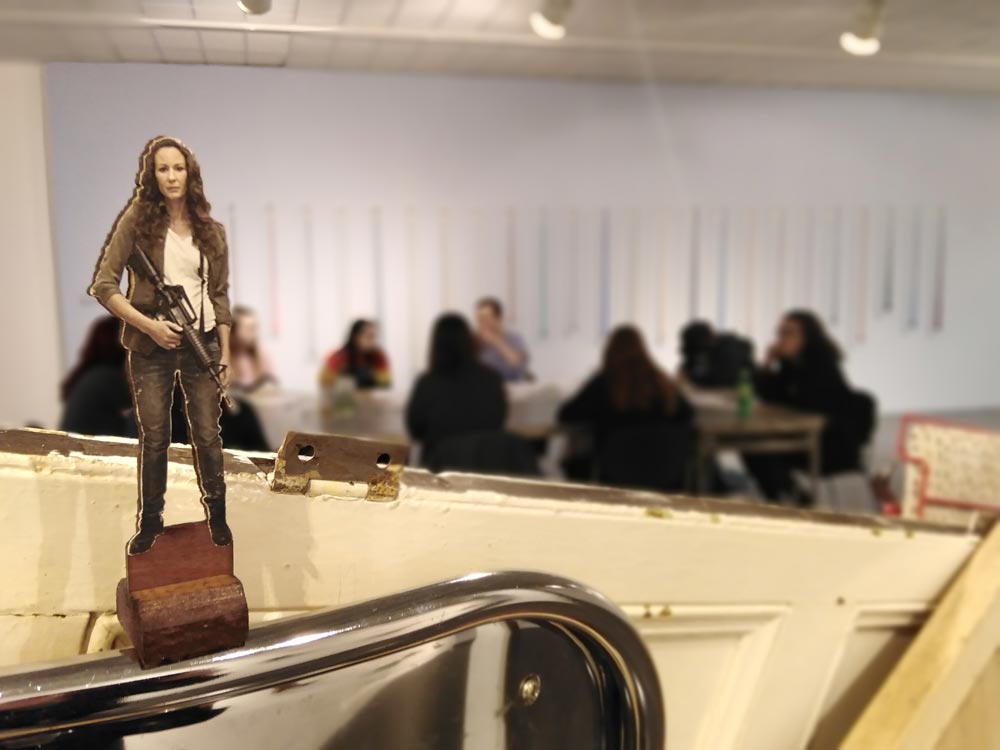
How do you manage your ASD in your daily life?
It’s an ebb and flow of difficulties. Being older, and also knowing myself and these missing pieces better, I do try to avoid situations that I’m not happy in, and try to have the quiet time I need away from things to recharge. There is such a thing as ‘autistic burnout’ because of overstimulation and to some extent the energy it takes to be in the world and with people and systems. It’s a battle to get the balance right, but knowledge is power as they say, again another reason for the diagnosis.
What did you hope to achieve from confirming your suspicions through a diagnosis?
To gain more of an understanding of the extent of my impairments, my ‘masking’ of who I am from the world. The understanding that things take me longer because of my difficulties. The official lines to be able to explain my difficulties relating to work or to employers.
I had someone, in a work context, laugh off me saying I thought I might be autistic, saying sarcastically ‘Oh well, nobody would have thought you are autistic Vicky!’ I don’t know why they thought that was acceptable. There’s an assumption too that, if you appear to be coping and don’t ‘appear’ autistic, what’s the big deal. If we look at the stats and evidence on neurodiverse people and mental health, staying in work, there is a greater need for people to have better understanding.
Most importantly, clarity about who I am, kindness to myself. Neurodiverse people often spend their life feeling not good enough, odd, bad for being different, awkward, defective somehow. Growing up a working-class kid from a dysfunctional homelife, I already felt I was an imposter in my career in the arts. I think there was a lot of damage from the meeting of my differences with difficulties in childhood, and the not fitting in. I’ve had a lot to unravel. But I kept on doing and ultimately achieving, until, in 2015, when I got cancer, and I stopped and looked at what I’d achieved and reassessed. It was then I realised the narrative I’d had since I left home at 15 was nonsense and I had to own who I was, and what I’d managed to carve in the world. That was big. That was very healing. That’s also when I started making time for my own writing and creativity – finally!
Did you already know other people of a similar age who had been through a diagnosis?
Yes, I have friends that are late diagnosis like me. A lot of women of my generation and older are missed because we mask from an early age, and aren’t even aware that’s what we’re doing. That’s a whole topic in itself about why women have been missed for so long, mainly due to stereotypes and a diagnostic focus on males.
Looking back, I also realised that I’ve been drawn to ‘my people’ as friends and in work situations. You know you won’t be judged, and even if you aren’t conscious of it, you take off your mask. There are, of course, neurotypical people who encourage this too (and they are usually really brilliant, forward thinking people) but generally, we have to stay on script and in line, and that can be exhausting.
Many people who fit the profile for Asperger syndrome are now being diagnosed with the umbrella term of Autistic Spectrum Disorder instead due to a change in the dislogistic wording. How does it sit with you?
I don’t mind which. I think the main thing is that it’s more understood and we can have more positive conversations about it. I would like people to be curious. I’m a curious person. I’m one of the people who risk asking – where are you from? to people, because I want to learn about things that might be fundamental to them. I’ve been happy when friends have asked – what’s it like? It should just be a part of normal conversation, not a hidden thing.
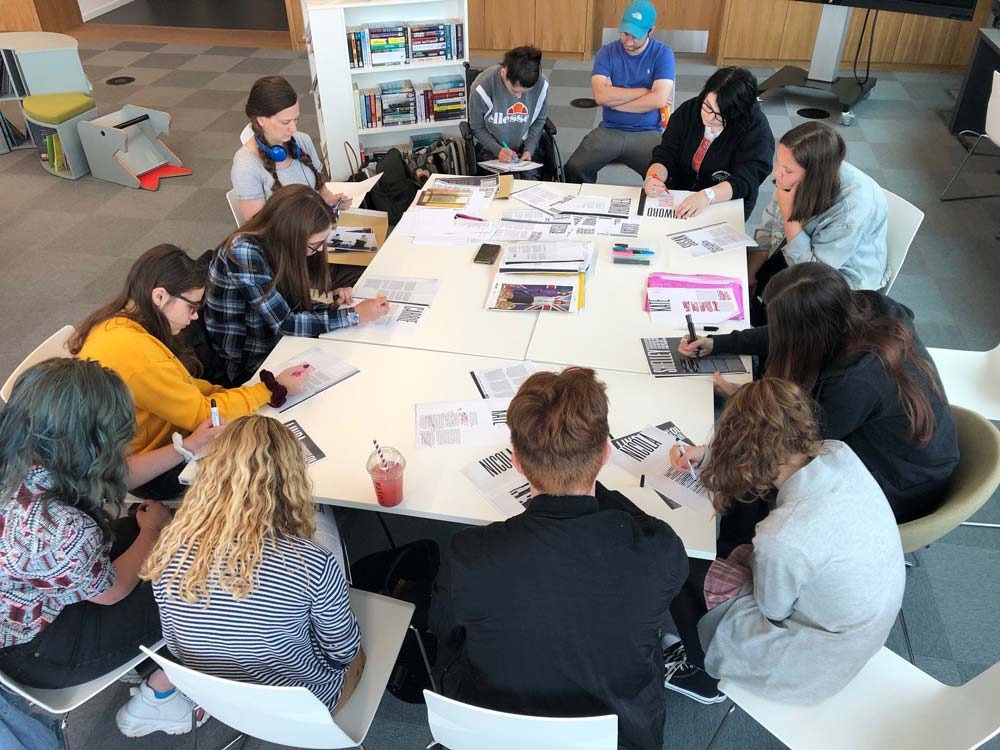
And how does ASD sit with a career in writing and working creatively with young people? Are there any elements that clash?
I think most people don’t know I’m neurodiverse in truth. And while I don’t hide it, I have to just get on with my jobs. I think a lot of neurodiverse people are entrepreneurial because we need to be motivated and are committed to what we’re doing, so the flexibility there is crucial to keep us from getting demoralised (as I have been in certain roles in my career). In terms of young people, I love their energy, honesty, the way I can be more me, less formal and ‘grown up’ haha. In my formative teen years, I had no guidance, another reason I think I didn’t ‘become’ who I had the potential to be for so long. I think, subconsciously, I’ve always enjoyed being that for young people. It’s such a critical time. Telling them they can. Confidence is such an easy superpower to give, but the effects are profound.
Can you tell us about work you’ve done with neurodiverse young people, diagnosed or otherwise?
I work with a lot of neurodiverse young people through writing and creativity. Some are diagnosed, others I’d say I can spot because of their ways of seeing or the difficulties they are having. Creativity is a wonderful space for our kind because there’s no wrong, as I like to say. People can celebrate their ways of seeing through what they write and sometimes writing is an easier way for us to communicate.
You recently started a podcast called Wonderfully Wired, about the experiences of women in their 40s who have all been diagnosed ASD in later life? Can you say more about that?
Yes, it’s a bit on the back burner at the moment though! It’s just a space I set up with fellow late-diagnosis friend, Justine Gaubert, for conversations and enquires around late diagnosis and also with regard to creativity and neurodiversity. Traditionally we associate autism with maths and science but creativity is another fab outlet from our strengths. You can find out more here: www.wonderfullywired.info/about
And do you write about your neurodiversity ever?
Yes, sometimes. I’m exploring it more these days. I’ll leave you with a poem I wrote on the theme of ‘masking’ that was published in Café Writers’ magazine. It’s really a nod to my younger self, who, like I said, I didn’t always appreciate and sadly devalued. I wanted to say sorry to her in a way, sorry for underestimating her.
Traffic
And when they finally confirm
what you’d come to suspect
that you’ve spent your whole life
concealing her as best you could
starting with the unwritten rules
for little girls from rundown homes
who can’t spell out sounds, who can’t
sit still, or tell the time, or tie a lace
or hone the flit of their moth-headed ways
the persistent puzzle to fit the slot
its morphing shape, the falling short
the energy shift to stay composed
to bite her lip, to quash the impulse
to stim the glitch, to hold the dam
to stop the spew of speech unravelling
the heart of it, the bandwidth blip
the getting lost, a compass flipped,
a foreign map to read the codes
with light-too-bright sore eyes
the comfort zone that she can’t take
beyond the door into the world
she doesn’t suit, its buzz wire game
her bated breath, its constant bleeps
the bottleneck of incoming data
outgoing calls, the unruliness
of decibels, the traffic jam
inside her skull, the overwhelm-overdrive-overload
the are you getting tired keeping up with this?
I digress,
where was I?
Yes –
when you finally understand
how you’ve spent your whole life
masking her like she’s only this
and then you look, really look
at what she’s given you and who she is –
let her stand up now. See her.
Here she is. Here.
This interview is an extended version of one published in No Boundaries, a zine published by The Civic, supported by ASOS.
To find out more about Vicky or Hive South Yorkshire, visit
